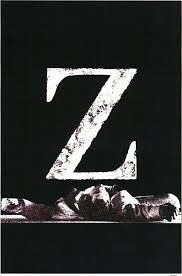
In a recent (17 October 2016) op-ed piece in the Wall Street Journal, “Yale Believes in Free Speech—and So Do I,” Yale’s President Peter Salovey argues this:
The United States is struggling culturally and politically with questions of race and ethnicity, as it has through its entire history. It should be no surprise that these matters are surfacing on college and university campuses, as they did in the past.
This time around, campus presidents have come under heavy pressure to take sides in a conflict that many have characterized as a war between the principles of inclusion and free expression. One side seems to think that we cannot make communities more inclusive unless we are willing to constrain or discourage the expression of offensive views. As the other side sees it, we cannot sustain an absolute commitment to free expression if we make inclusion an essential aspect of our mission.
This narrative of conflict rests on a false dichotomy, and a dangerous one at that. I believe we can uphold free expression and make our campuses more inclusive places.
I’ve underlined the crucial parts of Salovey’s argument.
Here, then, is what I will call Salovey’s Dilemma:
1. We cannot make [campus] communities more inclusive unless we are willing to constrain or discourage the expression of offensive views.
2. We cannot sustain an absolute commitment to free expression if we make inclusion an essential aspect of our [campus communities’] mission.
In other words, in one and the same campus community, according to 1., the social justice goal of inclusion entails coercive moralism about the expression of offensive views, whereas according to 2., free expression entails the rejection of inclusion.
In another recent (18 November 2016) op-ed piece, this one in the New York Times, “The End of Identity Liberalism,” in the wake of Donald Trump’s appalling victory in the 2016 US presidential election, Mark Lilla argues this:
1. Identity politics, aka political correctness, aka social justice warrior morality and politics, have disastrously messed up American liberalism and significantly contributed to Trump’s victory.
2. We should reject identity politics and replace it with “post-identity liberalism.”
I will call Lilla’s proposition 1., Lilla’s Thesis:
Identity politics, aka political correctness, aka social justice warrior morality and politics, have disastrously messed up American liberalism and significantly contributed to Trump’s victory.
And I will call Lilla’s proposition 2., Lilla’s Proposal:
We should reject identity politics and replace it with “post-identity liberalism.”
I think that Lilla’s Proposal is mistaken.
This is because I believe that liberalism in the context of the modern liberal democratic state, whether classical liberalism or neo-liberalism, is all washed up, philosophically, morally, and politically.
As opposed to Lilla’s Proposal, then, here is what I’ll call Z’s Proposal:
We should reject identity politics and replace it with Utopia Now.
But of greater importance for the purposes of this edgy essay is Lilla’s Thesis, which I think is absolutely correct.
Now back to Salovey’s Dilemma.
Salovey is absolutely correct that his Dilemma “rests on a false dichotomy, and a dangerous one at that.”
But then he does not explain either how the Dilemma rests on a false dichotomy or what that false dichotomy is: he merely asserts that free expression and the social justice goal of inclusion are morally consistent and coherent in one and the same campus community, e.g., at Yale.
It is clear and distinct, however, that Salovey’s Dilemma rests on a false dichotomy just insofar as and precisely because the social justice warriors of identity politics flagrantly commit what I have called the SJW (aka Social Justice Warrior) Fallacy, which is this:
It is a serious moral mistake to confuse being offended, which is merely a psychological fact about people who pursue a social justice agenda, and carries no moral weight at all, with being oppressed, which is a violation of respect for human dignity that necessarily involves coercion, which in turn employs violence, threats of violence, punishment, or threats of punishment in order to bring about various ends of the coercer, and thereby treats other people as mere means or mere things.
Moreover, confusing being offended with being oppressed—the SJW Fallacy—is morally and politically “dangerous” for precisely this reason:
In the context of the Professional Academic State, implementing the SJW Fallacy directly leads to the oppression of others by using coercive mechanisms such as social-media shaming, public-media shaming, institutional sanctions, or legal sanctions (and often enough, all four) to silence free expression.
Therefore:
Combining free expression and the social justice goals of inclusion, diversity, feminism, etc., in the same campus community are indeed morally consistent and coherent, but only if the social justice warriors of identity politics will stop oppressing others by committing and implementing the SJW Fallacy.
This conclusion, in turn, is not only perfectly consistent with, but also perfectly exemplifies and elaborates, Lilla’s Thesis.
It is now perhaps needless to point out that Salovey could not actually explain either how the dilemma of free expression and the social justice goal of inclusion rested on a false dichotomy or what that false dichotomy is, for this very reason:
Salovey was afraid of becoming the further target of social-media shaming, public-media shaming, institutional sanctions, or legal sanctions by the social justice warriors of identity-politics in the Yale Community and the larger public alike.
Or in other words, to that extent, sadly, Salovey was himself effectively silenced by identity politics.
That too is a perfect exemplification of Lilla’s Thesis.
Now where does professional philosophy come into this?
By way of an answer and conclusion, let me ask these four leading, provocative questions:
Have any members of Yale’s Philosophy Department ever come out publicly in support of President Salovey’s highly reasonable and generally very courageous stand on free expression?
Will any of them publicly support Lilla’s Thesis?
Will any other professional academic philosophers publicly support Lilla’sThesis?